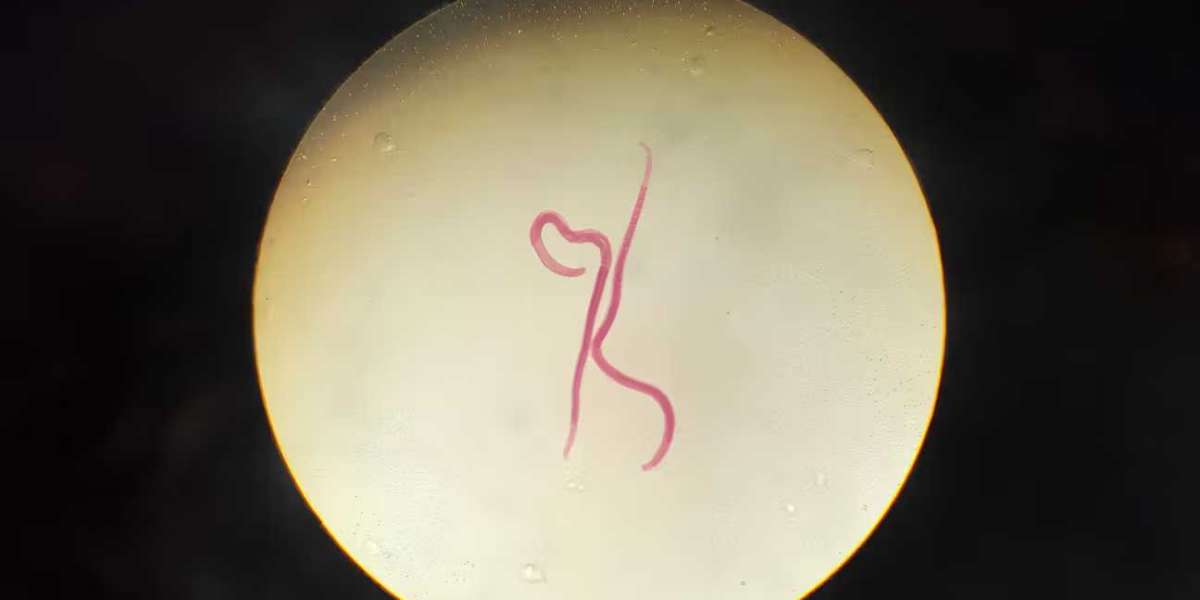Worm infections are a significant public health issue worldwide, especially in regions with poor sanitation and limited access to clean water. Parasitic worms, also known as helminths, are commonly transmitted through contaminated food, soil, or water, and they can cause a wide range of health problems, particularly in children. Preventing these infections is essential, and one of the most effective strategies is ensuring access to clean, safe drinking water.
In addition to preventive measures like proper hygiene and sanitation, medical treatments such as nitazoxanide 500mg play a crucial role in managing worm infections when they occur. This article explores the link between clean water and the prevention of worm infections, as well as the role of nitazoxanide in treating these infections.
What Are Worm Infections?
Worm infections are caused by parasitic worms such as roundworms, hookworms, tapeworms, and whipworms. These parasites enter the human body through various means, but a major route of transmission is through contaminated water and food. Once inside the body, they can cause malnutrition, anemia, growth retardation, and even cognitive impairment, particularly in children.
The World Health Organization (WHO) estimates that over 1.5 billion people are infected with soil-transmitted helminths (STH), making it a widespread issue in areas with inadequate sanitation and unsafe drinking water. Many of these infections can be prevented with improved water, sanitation, and hygiene (WASH) practices, highlighting the critical role clean water plays in combating parasitic diseases.
How Contaminated Water Leads to Worm Infections
In areas where sanitation is poor, human waste often contaminates water sources, which can lead to the spread of parasitic worm larvae. People become infected when they drink or come into contact with this contaminated water. In addition, bathing in contaminated water or using it to wash food can also result in transmission.
Some of the most common helminths transmitted through water include
Ascaris lumbricoides (roundworm)
This worm is typically transmitted through contaminated food or water containing the eggs of the worm. Once ingested, the eggs hatch in the intestines and cause a variety of symptoms, including abdominal pain, vomiting, and in severe cases, intestinal blockage.
Ancylostoma duodenale (hookworm)
These worms enter the body through the skin, usually by walking barefoot on contaminated soil or coming into contact with contaminated water. Hookworm infections can lead to anemia, fatigue, and developmental issues in children.
Schistosoma (blood flukes)
These parasites live in freshwater and infect people when they come into contact with water that contains larvae. Schistosomiasis, the disease caused by these parasites, can lead to chronic pain, organ damage, and other severe health issues.
The Role of Clean Water in Preventing Worm Infections
Access to clean, safe drinking water is one of the most effective ways to prevent the spread of parasitic worm infections. Clean water helps break the transmission cycle by preventing human exposure to worm eggs or larvae. Here’s how:
Prevents Contamination
Clean water is free from the parasitic worms and other harmful microorganisms that can cause infection. When people have access to clean water, they are less likely to ingest or come into contact with these parasites.
Reduces the Need for Unsafe Water Sources
In areas where clean water is not available, people are often forced to rely on unsafe sources such as rivers, lakes, or wells that may be contaminated. Increasing access to safe water sources can drastically reduce the risk of infection.
Improves Hygiene
Clean water is essential for maintaining good personal hygiene, which is critical for preventing the spread of parasitic worms. Washing hands with clean water after using the toilet and before handling food can significantly reduce the risk of transmission.
Enables Proper Sanitation
Access to clean water is also necessary for the proper functioning of sanitation facilities, such as toilets and sewage systems. When these facilities are available and properly maintained, the risk of water contamination and subsequent worm infections is minimized.
Nitazoxanide 500mg: An Effective Treatment for Worm Infections
While prevention through clean water and improved sanitation is the most effective long-term strategy to reduce worm infections, medical treatments are crucial for individuals who are already infected. One of the key medications used in the treatment of parasitic infections is nitazoxanide 500mg.
Nitazoxanide is an antiparasitic drug that works by inhibiting the energy production of parasites, leading to their death. It is effective against a wide range of parasites, including protozoa and helminths. Nitazoxanide is commonly used to treat infections such as giardiasis and cryptosporidiosis, both of which are often transmitted through contaminated water.
Nitazoxanide 500mg is particularly useful in treating worm infections caused by protozoa and helminths. Its broad-spectrum action makes it a valuable treatment option for various gastrointestinal infections that result from unsafe drinking water. Unlike some other antiparasitic drugs, nitazoxanide has a relatively short treatment course (usually 3 days) and is generally well-tolerated, making it a practical option for treating worm infections in both adults and children.
The Broader Impact of Clean Water and Worm Prevention
Improving access to clean water not only reduces the incidence of worm infections but also has a broad range of other health benefits. Clean water can help reduce the spread of other waterborne diseases such as cholera, typhoid, and dysentery. It also improves overall public health by reducing the burden of disease on communities and healthcare systems.
Access to clean water is particularly important for vulnerable populations, including children, pregnant women, and people with compromised immune systems. Worm infections are especially harmful to children, as they can lead to malnutrition, impaired cognitive development, and poor academic performance. Preventing these infections through access to clean water and proper hygiene can help children thrive and reach their full potential.
Global Efforts to Improve Water Access
International organizations such as the WHO and UNICEF have been working to improve access to clean water and sanitation in low- and middle-income countries. The WHO's strategy for controlling worm infections includes deworming programs, health education, and improving WASH conditions. These efforts have been successful in reducing the prevalence of worm infections in many regions, but challenges remain, particularly in rural and remote areas.
Access to clean water is also a key component of the United Nations' Sustainable Development Goal (SDG) 6, which aims to "ensure availability and sustainable management of water and sanitation for all" by 2030. Achieving this goal is critical for reducing the global burden of waterborne diseases and worm infections.
Conclusion
The importance of clean water in preventing worm infections cannot be overstated. By reducing human exposure to contaminated water, improving hygiene, and supporting proper sanitation practices, access to clean water can significantly reduce the prevalence of worm infections in vulnerable populations.
While prevention is the best strategy, medical treatments such as nitazoxanide 500mg play a vital role in managing infections when they occur. Global efforts to improve access to clean water and sanitation are essential to achieving long-term success in the fight against parasitic diseases, helping millions of people live healthier, infection-free lives.



